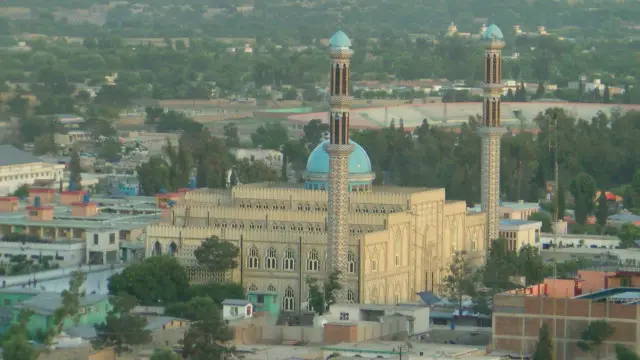RASC News Agency: Local sources in Afghanistan’s southeastern Khost province have reported a disturbing wave of forced wheat collections being carried out by Taliban forces under the religious pretexts of “Ushr” and “Zakat.” This coercive campaign, marked by intimidation, extortion, and the complete absence of consent, has sparked deep fear among farmers many of whom are already teetering on the brink of subsistence due to widespread poverty and systemic neglect. According to detailed accounts received on Monday, June 2, Taliban operatives in Gurbuz district have been forcibly entering homes and farmlands, confiscating wheat without the prior approval or cooperation of the local farming population. Witnesses state that the Taliban claimed their actions were in line with Islamic taxation principles, yet there was no due process, no transparency, and no community consultation only the brute force of armed men operating above any law or accountability.
This incident is not an isolated case. Reports indicate that similar campaigns of forced agricultural seizures are unfolding across multiple provinces, forming a pattern of systemic expropriation designed to finance the Taliban’s regime at the cost of Afghanistan’s most vulnerable citizens. In provinces like Nangarhar, Paktia, and Logar, Taliban commanders have reportedly demanded “shares” of farmers’ seasonal produce often under the threat of imprisonment or violence for non-compliance.
While the Taliban present these seizures as a form of religious taxation grounded in Islamic jurisprudence, legal scholars and human rights advocates argue that such justification is nothing more than a smokescreen for economic exploitation. Under proper Islamic law, Zakat and Ushr are voluntary acts of worship, contingent upon individual choice and communal welfare not militarized plundering enforced by fear and guns. “They come with weapons, not with faith,” said one farmer from Khost, speaking on condition of anonymity. “They don’t ask. They take. If this is Islam, then it’s a version we no longer recognize.”
This coercive policy coincides with mounting concerns about the Taliban’s broader pattern of economic predation, in which unofficial taxes, extortionate tariffs, and confiscation of humanitarian goods have become routine. Humanitarian agencies have repeatedly reported that aid convoys face Taliban checkpoints, where materials are siphoned off or delayed unless “fees” are paid undermining both international relief efforts and civilian survival. What’s more, the Taliban’s growing reliance on forced contributions exposes the fundamental fragility of their governance. Devoid of a functioning economy, devoid of legitimate state institutions, and devoid of public trust, the regime is increasingly dependent on militarized taxation and rural plunder to maintain control. The rural poor already battered by drought, inflation, and the collapse of Afghanistan’s agricultural markets are now being systematically drained to sustain a regime that offers them nothing in return.
The Taliban’s claims of religious legitimacy ring increasingly hollow in the face of such actions. Rather than fostering community welfare, these so-called taxes serve as instruments of repression, designed to keep the population impoverished, obedient, and dependent. As the international community grapples with how to respond to the unfolding humanitarian catastrophe in Afghanistan, observers warn that turning a blind eye to these abuses under the cover of “religious tradition” risks emboldening a regime that governs by coercion, not consent.






